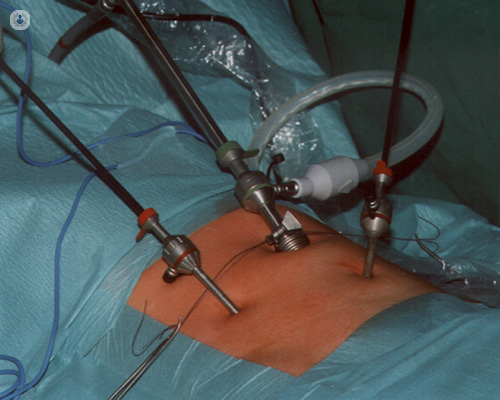Can a groin hernia heal on its own without surgery?
Written by:Here, highly experienced consultant upper GI and bariatric surgeon, Mr Ahmed Hamouda, discusses groin hernias in detail, including symptoms, surgery, and prevention.

What are the symptoms of a groin hernia?
Groin hernias present as a lump in the groin and/or discomfort especially after a bout of intense physical activity or an awkward lifting movement.
Can a groin hernia heal on its own without surgery?
Unfortunately, not. A hernia is a tear in the muscle layer, through which protrudes a sac made of the lining of the abdomen and containing a loop of bowel or internal body fat. Once the tear has occurred, the hernia does not reverse and can only get bigger over a period of time. The only treatment is surgery, with the alternative being to watch and wait until it becomes symptomatic or larger.
What are the different types of surgeries available for repairing a groin hernia?
By and large, the repair is performed under an anaesthetic and can be open or keyhole surgery. There are advantages and disadvantages for both procedures which is best discussed with me in consultation.
The general rule is that for one-sided groin hernias, the open and keyhole procedure have similar recovery and healing rates. For bilateral groin hernias, the keyhole procedure is far superior in terms of recovery, scarring, and healing.
How long is the recovery period after hernia repair surgery?
Once the operation is done, expect some bruising and swelling in the area which can take two weeks to resolve. I would recommend not driving for two weeks and no heaving lifting for six weeks following surgery.
Are there any lifestyle changes or precautions recommended to prevent a groin hernia?
If heavy lifting or straining movements are avoided, it may decrease the risk of forming one. However, some families have an increased risk of having hernias and it is difficult to predict who will develop one. It is best to speak to a healthcare professional if you suspect you have a hernia to outline your options and minimise the risk of obstruction or strangulation of the bowel in a hernia.
If you wish to consult with Mr Ahmed Hamouda today, simply head over to his Top Doctors profile.


